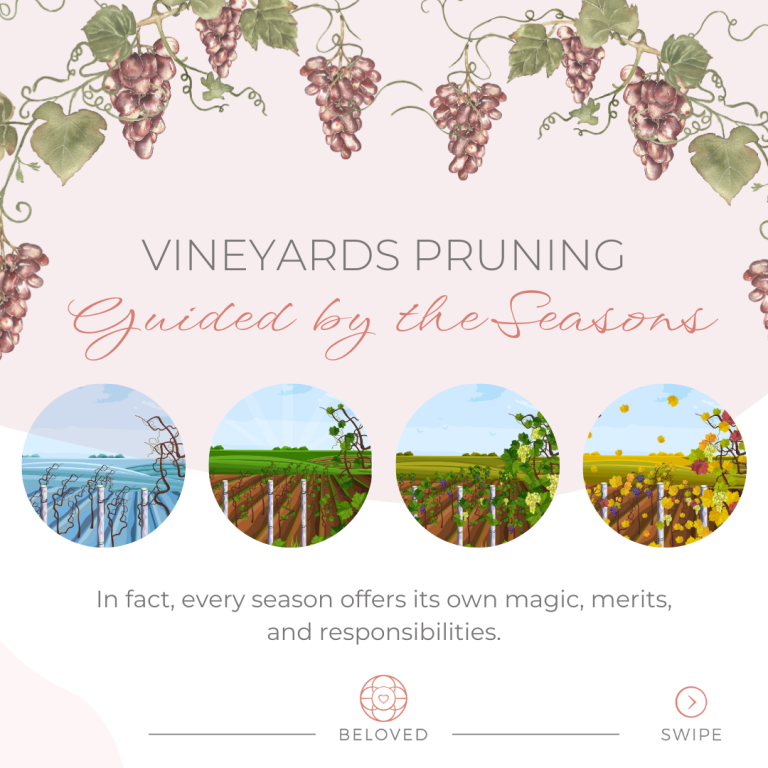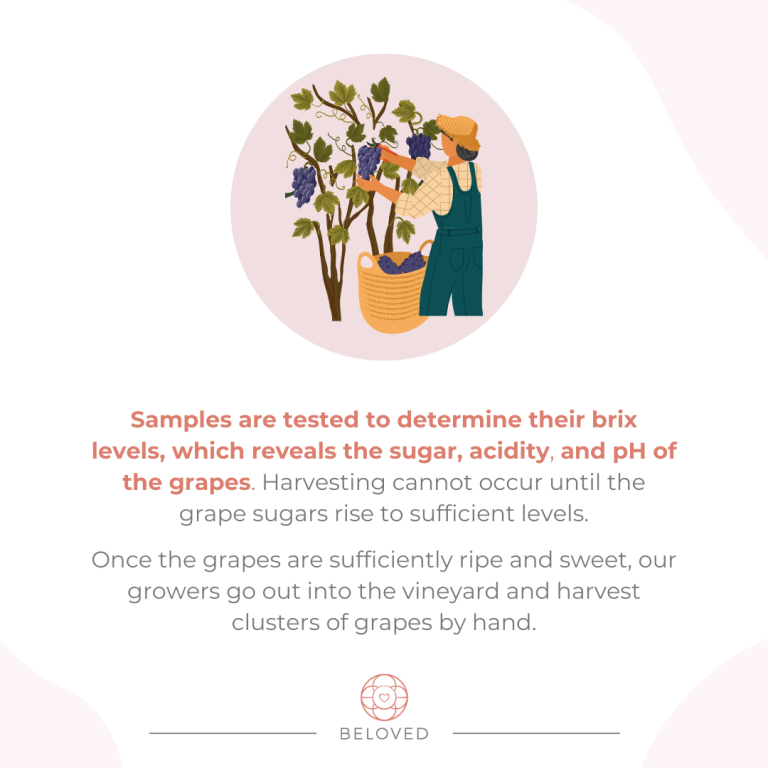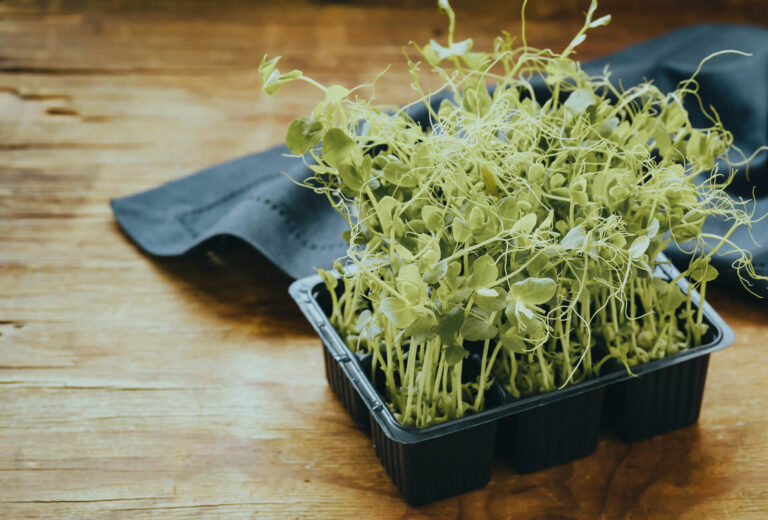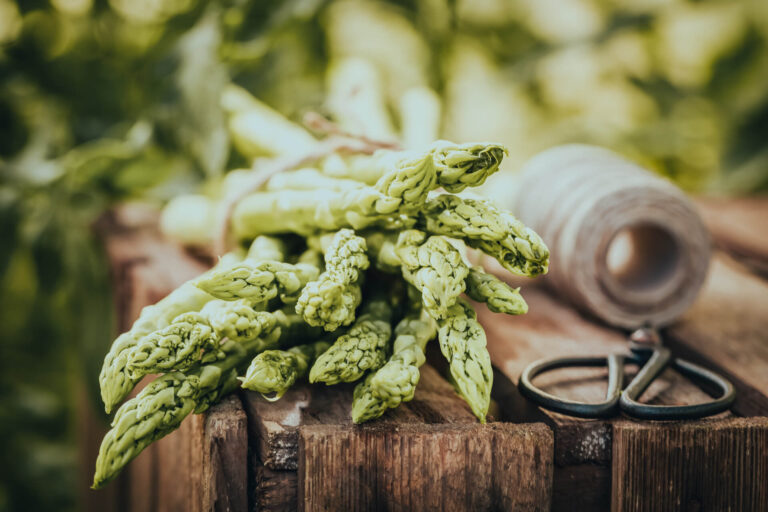Organic vs. Ecological farming: Tuscany’s choice
- Our Sustainable Farm (OSF)
Grape vines are a wonderfully multifaceted main staple on the farm. They are the perfect plant for anyone wanting to live a thriving and self-sustaining lifestyle. Not only do grapes provide an excellent source of refreshing food and juice, but they also make wine.
Depending on how you want to consume your grapes, there are different varieties to consider. The three main types are the European variety (Vitis vinifera) which is best for wine and also has numerous table varieties, the cold hardy American variety (Vitis labrusca) which is excellent for eating, and another American variety native to The South (Vitis rotundifolia), which is celebrated for its versatile culinary applications. The leaves of grape vines are edible too and can be used to make dolmades (meat and rice-stuffed grape leaves).
There’s no better way to welcome in the fall season than with a fresh glass of new wine. It’s no surprise that growing grapes and producing wine is one of the most rewarding activities on the farm, as each variety of grape has its own unique application and use.
Today we invite you to walk through our vineyards with us. We’ll show you what it takes to grow grape vines and why they are an excellent option for sustainable farming. So, gather some cheese, perhaps a handful of grapes, or a glass of your favorite wine, and let’s get going.


Guided by the Seasons
Throughout the farm and especially in the vineyard, there is always work to be done, no matter the time of year. In fact, every season offers its own magic, merits, and responsibilities. With each turn of the weather, grape vines too, require ongoing commitment and devotion. Indeed, they are a labor of love.
After the fall grape harvest, one might think that laboring in the vineyard is over until spring. The truth is, however, that grapes need frequent attention. As winter arrives, our vines settle into deep hibernation. All greenery and vegetation fall away to reveal woody, lignified branches.
Even as snow drifts in and covers our vineyard, we are already thinking about the next steps we need to take. To prepare for spring, there are essential tasks that must take place during the winter. The bare branches of our grape vines are due for pruning. This winter pruning will encourage new growth when the warmer weather returns, as grapes only grow from new growth. Like anything else, we vineyard keepers know that we get out of our vines what we put into them…so we watch and tend to them carefully.

Vine Structure
An established grape vine is one that has been trained to grow upon a supporting lattice work or post and wire fence system. In a well-organized vineyard, rows upon rows of fencing will be erected in a bright and sunny location. Various vine crops can be planted along this post and wire framework. Along these support fences, grape vines should be ideally spaced 6 to 10 feet apart, depending upon the grape variety. The support fences have at least three main wires, which the vines eagerly climb and are anchored to.
Each plant should have two main “canes”, “spurs”, or foundational arms issuing from the main trunk of the vine. The canes are then trained to sprawl out horizontally along the lowest supporting wire framework. From these horizontal branches, all new vertical growth will emerge. New buds will form along the trained cane or spur branches as the vines reawaken in the spring.



Types of Pruning and Precautions
There are two types of pruning: spur pruning and cane pruning. Which one you choose will depend on your local climate and traditions. Spur pruning works well in warmer Mediterranean climates and is what’s most often used here in Italy. We like to use the ___ method as we are located in the __[northern/southern]__ part of Italy.
Before you begin pruning, you want to use clean shears to prevent disease and fungal infections. You can also apply anti-fungal treatments to protect wounds and freshly pruned areas on the plant.

Winter Pre-Pruning
This type of pruning is usually mechanized on larger commercial farms, but if you are devoted to sustainable viticulture and have the manpower, it can be done manually by hand.
Essentially, winter pre-pruning involves removing the topmost vine growth. We are removing all of last year’s old growth to make room for expansion in the current year. This frees the lower vine to be further pruned by expert hands later on. In the Northern Hemisphere, most growers do this in January or February, while the plant is completely dormant.
At this stage, most of the vertical old growth is removed. With cane pruning, only the original cane branches remain, with perhaps 4 to 6 of the strongest vertical branches still intact. We keep a few extra branches, for insurance. With spur pruning, we remove all vertical shoots or branches and leave behind 2 to 3 buds at each node. The entire old wood spur remains intact.
Nothing goes to waste on an efficient farm. The lopped-off branches and trimmings are tossed between the grapevines for mulching. This enables valuable nutrients to return back to the soil.



Early Spring Pruning & Branch Training
There are two types of pruning: spur pruning and cane pruning. Which one you choose will depend on your local climate and traditions. Spur pruning works well in warmer Mediterranean climates and is what’s most often used here in Italy. We like to use the ___ method as we are located in the __[northern/southern]__ part of Italy.
Before you begin pruning, you want to use clean shears to prevent disease and fungal infections. You can also apply anti-fungal treatments to protect wounds and freshly pruned areas on the plant.

Bud Break
As warm weather returns to the vineyard and daily temperatures linger above 10° C (50° F), our grape vines will begin to wake up.
In Italy, this typically happens in March. Heralding the arrival of warmer weather, the plants display what’s called “bud break”. This simply means that our vines are beginning to show new growth. Fresh little buds begin to emerge along once dormant stems. This new growth will quickly proliferate as the spring season settles in. These little buds will develop into new branches or canes, and then eagerly shoot upward toward the upper wire supports.



Removing Suckers
As spring continues, new suckers will spring up all over the vine. At this time, we remove any unwanted growth, while also encouraging and training the desired branches we want to keep. In the vine’s “renewal zone”, we seek out the best shoots. We choose about 6 to 8 shoots and make sure they are well spaced on the vine, to avoid crowding. This process opens up the vine canopy to ensure proper airflow and ample access to sunshine. Our spacing is about 2 to 4 inches. Again, discards are dropped between the vines for mulching.
As new shoots spring up from the base of the vine, we affix them to the fence wire framework, thereby training them for the next season.

Stabilizing the Vine
As the weeks roll by and the shoots become more robust, they are carefully affixed to the wires higher on the fence. This process will enable future grape clusters to be more accessible later on in the season while also exposing them to sunshine.
In late spring, the vines begin to produce calyptra, which are long stems with tiny clustering pods. As the vine shoots reach upwards and are affixed to the topmost parts of the support fence, these pods will burst open to reveal tiny cream flowers. Thereafter, small pre-grapes or “grape berries” will emerge.



Summer Pruning and Leaf Cleaning
Eager shoots will continue to reach upward above the supporting wires. In order to focus the energy of our vines, we walk through the rows of vines and lop off these taller and fruitless branches. This extra diligence helps the plant put all its resources into the manufacture of its grapes.
As the grapes grow larger, we again visit the vines and remove the larger east facing leaves that shade the grapes. We want the grapes to be exposed to the natural warmth of the sun so they can ripen. This process opens up the spaces around the grapes, vastly improving airflow. Leaf cleaning also helps prevent powdery mildew.

Veraison and Late Summer Pruning
Veraison, or when grapes begin to ripen and become softer, is one of the most important times in the vineyard. At this time, the grapes themselves are thinned. Depending upon the variety grown, the remaining grapes ripen for another 30 to 70 days. By pruning the grapes, we are enabling the vine to better nourish the grapes that remain. This causes our grape clusters to become sweeter and reach peak ripeness.
In red grapes, the transition from green to red begins as anthocyanins replace chlorophyll within the grapes. Acidity lowers as sugars rise. With green grapes, the color remains the same, but the grapes develop a more translucent quality as carotenoids nourish them.
Veraison is a way for the plant to protect the grapes and further develop the seeds within. Nutrients and sugars are transported from the roots of the vine directly to the grapes, making them plump up in size.
During this ripening process, we are looking for smaller and later forming grape clusters that are unlikely to ripen. We remove these excess clusters.
The shorter vines will not be chosen for bearing fruit and any clusters growing on them will also be stripped off. Longer vines with multiple clusters will be thinned as well. We also encourage the vines to grow grapes near the bottom of the vine and remove clusters near the top.
At this time, we hope for warm sunny days and cool evenings with little rainfall. This way the grapes will reach optimal maturity and fully ripen. At this time, and after all grape thinning has occurred, we place a flexible mesh covering along the bottom portion of our vines, to protect our grapes.



Fall Harvest
As the summer wanes and fall approaches, our grapes begin to deepen into their rich and distinctive color. At the farm, we grow mostly ____ and ____, which are celebrated for their ____ flavor and ____aromas. [Here is an optional area to fill in extra information. You can also let me know the varieties you grow, and I can rewrite this portion.]
We sample our grapes, block by block to look for the right balance of sweetness, acidity, and flavor. We are looking for a pH around ___. We also examine the seeds to make sure they are turning brown, which denotes maturity and ripeness.
Samples are tested to determine their brix levels, which reveals the sugar, acidity, and pH of the grapes. Harvesting cannot occur until the grape sugars rise to sufficient levels. This testing process gives us an estimate of how much longer the grapes must remain on the vine to further ripen.
Once the grapes are sufficiently ripe and sweet, our growers go out into the vineyard and harvest clusters of grapes by hand. Any undesirable grapes are knocked off right in the field, while desirable grape clusters are placed into our harvesting bins for processing later.
After all the grapes have been removed from the vine, they are brought into the winery where they will be examined once again and sorted by quality.
For a brief time, the vineyard can rest. As the cooler weather arrives, the vines will drop their leaves and once again go dormant. Soon, we will begin the whole process all over again!

Conclusion
Growing grapes is such a rewarding and enjoyable endeavor. Plus, they are a great investment. Once established, well-tended grape vines will continue to reliably produce fruit for 30 to 40 years and often longer. They are also a great way to teach children the art of cultivation and get the whole family involved in farming.
We hope that you’ll join us and have found this article helpful. Even if you’re not ready to care for a large vineyard, you can still enjoy grapes in your garden. Grape vines make a wonderful ornamental plant as well, as they are both functional as a delicious source of food and beautiful to look at!
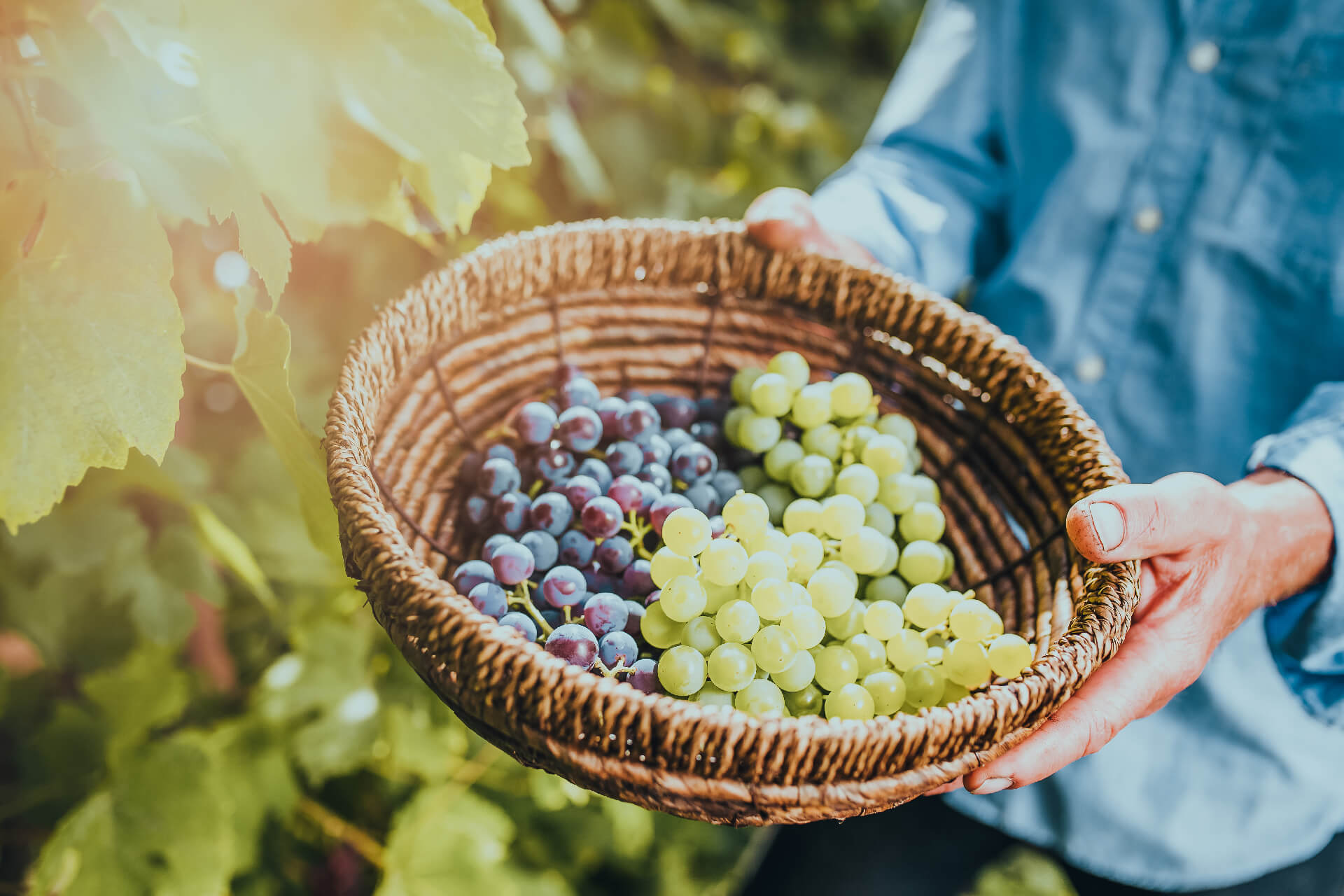


Summary
Grape vines are a versatile staple on farms, providing food, juice, and wine. There are three main varieties: European, cold hardy American, and native to The South. Growing grape vines is rewarding, as each variety has its own unique application. Throughout the season, grape vines require ongoing commitment and devotion, and pruning is essential for preparation for spring. As winter approaches, grape vines need frequent attention to maintain their health and productivity. Winter pruning is crucial for grape vine growth, as it encourages new growth when warmer weather returns. An established vine is trained to grow on a supporting lattice work or post and wire fence system, with vines spaced 6-10 feet apart. Each plant has two main canes or spurs, which spread horizontally, allowing new vertical growth to emerge. Pruning types include spur pruning and cane pruning, depending on the climate and traditions. Winter pre-pruning involves removing the topmost vine growth to make room for expansion and allows for further pruning by expert hands later. Cane pruning removes only the original cane branches, while spur pruning removes all vertical shoots and leaves behind 2 to 3 buds. This efficient farming method allows nutrients to return to the soil.

Early spring pruning and branch training involve selecting the two hardiest and trimming away damaged ones. These branches become foundational canes for the growing season. Bud break occurs when vines show new growth, and suckers emerge as spring progresses. Remove unwanted growth and train desired branches, ensuring proper airflow and sunlight access. The vineyard follows a specific process for optimal growth and development. The spacing is 2 to 4 inches, and discards are dropped between vines for mulching. As new shoots emerge, they are affixed to the fence wire framework, stabilizing the vine. In late spring, calyptra emerge, and small pre-grapes or “grape berries” emerge. Summer pruning and leaf cleaning are performed to focus energy on the vines and expose them to sunlight. Veraison and late summer pruning are crucial for nutrient-rich grape clusters, allowing for a sweeter and more ripeness. Grapes undergo a ripening process, removing excess clusters and promoting optimal maturity. Grapes are thinned and grown near the bottom, with warm, cool days and minimal rainfall. As fall approaches, grapes deepen into rich colors, with popular varieties like ____ and ____ being celebrated for their flavor and aromas. Grapes undergo a pH test, examining seeds for maturity and ripeness. Samples are tested for sugar, acidity, and pH, determining the duration of ripening. After harvesting, grapes are hand-harvested, sorted, and brought to the winery for quality assessment. Well-tended vines can produce fruit for 30-40 years, teaching children cultivation and involving the entire family in farming.


REFERENCES
Bud break
Bud Breaking in March
Spacing
Pruning
About Grape Ripening
Ripening Process
New wine/grape juice
Vitis labrusca originated in Italy? Some sources say it is an American native, while others say it came from Italy originally.
Vitis labrusca – banned in Italy Though both varieties grow in Italy, however Vitis labrusca has been banned since 1979.
Vitis vinifera This variety makes both wine and table grapes.
Vitis rotundifolia
Breakdown of Popular Grape Varieties
Pollination
Cane versus Spur Pruning For this article I mostly explained the cane pruning method, since it is more complex.
Disease prevention
How-To Videos:
Mandolins and Wine’ (care through the seasons)
Greg Pennyroyal’ (excellent spur pruning example)
GuildSomm’ (cane and spur pruning)
Climate considerations
